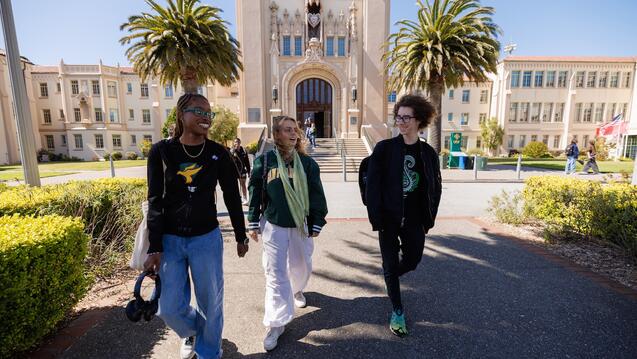Faculty Spotlight: Jerome Stewart

The assistant professor talks about pursuing justice, his advice for incoming students, and what he’s looking forward to this school year.
Why did you choose to work at USF?
To pursue justice. More specifically, USF allows me to deepen my values-based pedagogy, to join a community of excellent educators, and to expand my critical research agenda.
What is your favorite place in San Francisco?
What a difficult question. Let's say Fort Funston (when I am with my dogs) or Golden Gate Park otherwise.
What advice do you have for incoming students?
I often share this quote with freshmen. I present it here without comment: “The plain fact is that the planet does not need more successful people. But it does desperately need more peacemakers, healers, restorers, storytellers, and lovers of every kind. It needs people who live well in their places. It needs people of moral courage willing to join the fight to make the world habitable and humane. And these qualities have little to do with success as we have defined it.” — David Orr, Ecological Literacy
What are you looking forward to doing on campus this year?
I am excited for conversations with students outside on campus when the weather is nice. I am excited for jogs up the Lone Mountain stairs and the surrounding hills. I am excited to watch the basketball teams play. And of course, I am excited for graduation in the St. Ignatius Church.
What was your first job as a teenager?
I was a laborer on construction sites when I was 15 years old! I learned so much more about the world during those months than I did at my first internship at 20 years old. I used the cash from my first payday to buy my first pair of new Air Force Ones.
What is one book you would recommend?
The Warmth of Other Suns, by Isabel Wilkerson. This book is a captivating story of the Great Migration, the flight of millions of Black Americans from the South in the early 1900's to the North, Midwest, and West. These migrants were refugees of a sort, fleeing the brutality and hopelessness of Jim Crow for some semblance of a better life (Debate rages on about whether our forebearers actually found that "better life").


